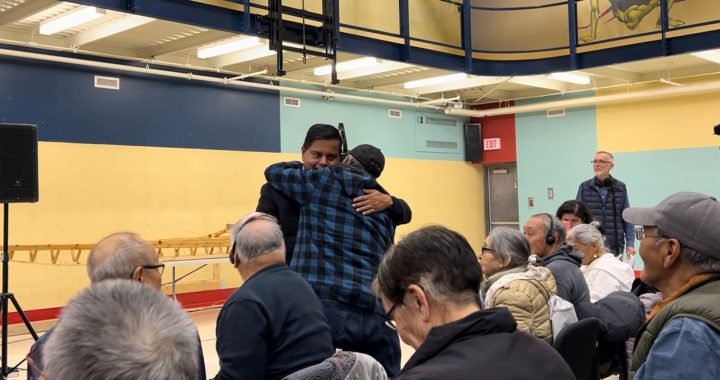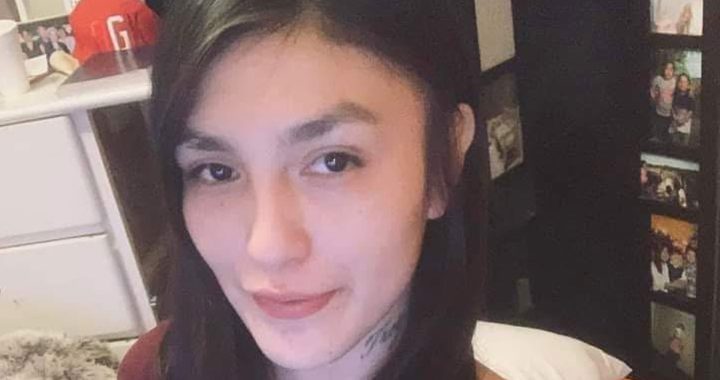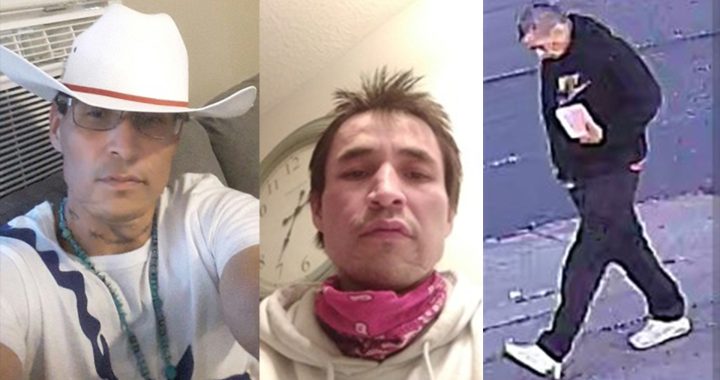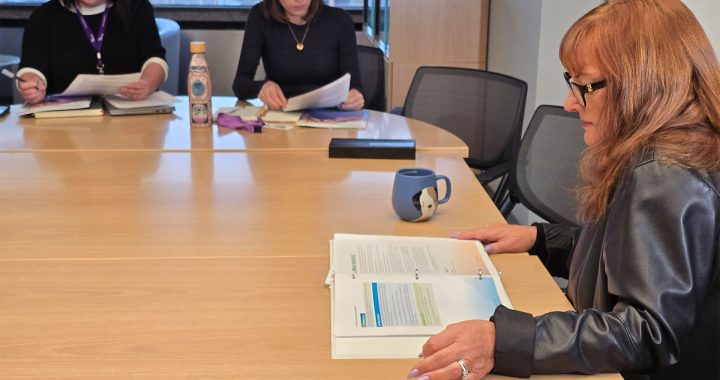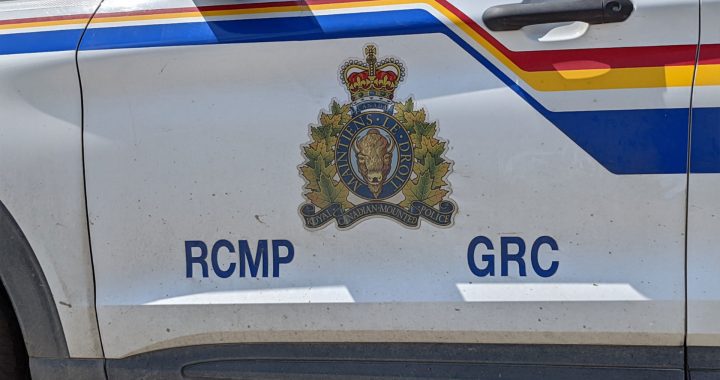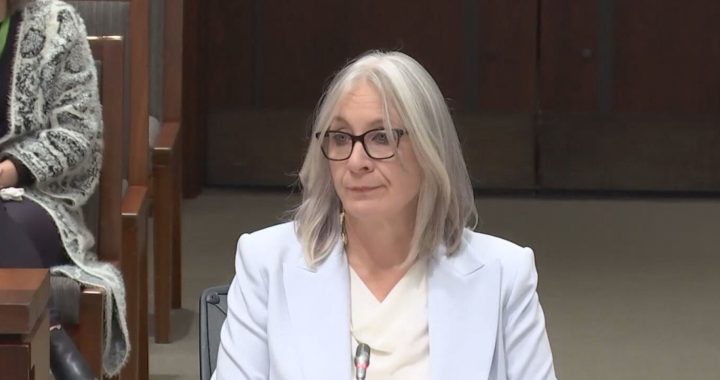APTN National News
The prime minister kicked off a national town hall tour Tuesday night in the Sipekni’katik district of Mi’kma’ki – or Lower Sackville, N.S.
That’s what Trevor Sanipass of Eskasoni and Elder Billy Lewis reminded the more than 1,000 in attendance during a land acknowledgement to begin the evening.
From health care and marijuana legislation, Justin Trudeau fielded questions on an array of issues, including immigration and Indigenous sovereignty in the Sackville High School gymnasium.
As the event began Rebecca Moore, a 27-year-old Mi’kmaw woman from Pictou Landing First Nation stood silently among the seated audience members as the prime minister slowly went around the room taking questions in a clockwise direction.
After a dozen questions, and arriving at the place where Moore stood alongside her friend Michelle Paul, who was holding an eagle feather in the air, Trudeau skipped over the two, still not having taken a question from an Indigenous person on Indigenous related matters.
Moore quietly walked out of the room. But Paul left her place and moved to an empty seat ahead of Trudeau’s queue, this time garnering his acknowledgement.
Holding the eagle feather, Paul challenged Trudeau on the disparity between his promises of reconciliation and renewing nation to nation relationships, and the realities on the ground in Nova Scotia.
“Right here in Mi’kma’ki, right now, we have in Eskasoni 70 per cent poverty — that’s unacceptable. We have in Potlotek water that cannot be drank, that cannot be used — that’s unacceptable. And on the Sipekni’katik River we have warriors at the Treaty Truckhouse who refuse to leave because Alton Gas is threatening to pour brine in our river system. That is unacceptable,” she said.
Paul reminded Trudeau that there are traditional governing systems in place in Mi’kma’ki, but that Canada doesn’t recognize them, instead negotiating only with the Assembly of First Nations and chiefs elected under the rules and legislation of Canada’s Indian Act.
After returning to the audience Moore then spoke to Trudeau reminding him that the Peace and Friendship treaties are still binding, and that Canada is not holding up the Crown’s side of the agreements.
“I’m a direct descendant of Jean-Baptise Cope, who signed the Peace and Friendship Treaty—the Peace Treaty of 1752—and we’re still here and every day I see that treaty being disrespected and dishonoured and I’m here to ask you: When are you going to honour the treaty in its full capacity, the way that it was supposed to be?”
Moore also suggested that if the treaties were being adhered to, fewer Mi’kmaq would be living in poverty.
“We are not an Indigenous nation under Canada, we are an Indigenous nation on a national level,” she said.
“We have something under the Peace and Friendship treaties [where] we have the rights to sell our wares, and we also have the rights to best advantage in trade. So my question to you is: If we have best advantage in trade under international treaty law, then why are we the poorest people in the country? It doesn’t look to me like we have best advantage in trade. It looks to me like you have best advantage in trade.”
Responding, Trudeau didn’t address the Mi’kmaq treaties specifically but acknowledged that Canada has not respected treaties with Indigenous nations more broadly.
He also alluded multiple times to “partnerships” between Canada and “Indigenous Canadians,” and said reconciliation and the establishment of healthy nation to nation relationships will take some time.
“You both highlighted the complexities and the challenges we are facing of defining what is a nation to nation relationship, who our interlocutors must be, how we move forward in true partnership that respects rights and opportunities,” he said.
To Paul and many in Mi’kma’ki, the wait has been decades and centuries-long.
“We don’t have the luxury of time, actually, because a lot of our leadership that he recognizes are at the table negotiating, as we speak,” Paul told APTN after the event, alluding to various Mi’kmaq land claims negotiations taking place between Indian Act chiefs and Canada’s Department of Crown-Indigenous Affairs.
“We’re not happy about that,” Paul said. “They don’t have our consensus. We want our treaties honoured, we want them implemented. We know how powerful our treaties are.
“We’re ready as rights holders, as a sovereign Mi’kmaq Nation.”
The issue of immigration featured prominently at Tuesday’s town hall, too.
Outside about two dozen people rallied in support of Abdoul Abdi, the 23-year-old Somali refugee making headlines over his potential imminent deportation.
Abdi’s sister, Fatouma, asked Trudeau point blank why he isn’t stepping in to help her brother.
“Why are you deporting my brother? How come you’re not stopping it?” she asked the prime minister.
Trudeau said deporting people is “something we have to take very, very seriously [and] something we have to reflect on with compassion, and with empathy, and with understanding on a case by case basis.”




